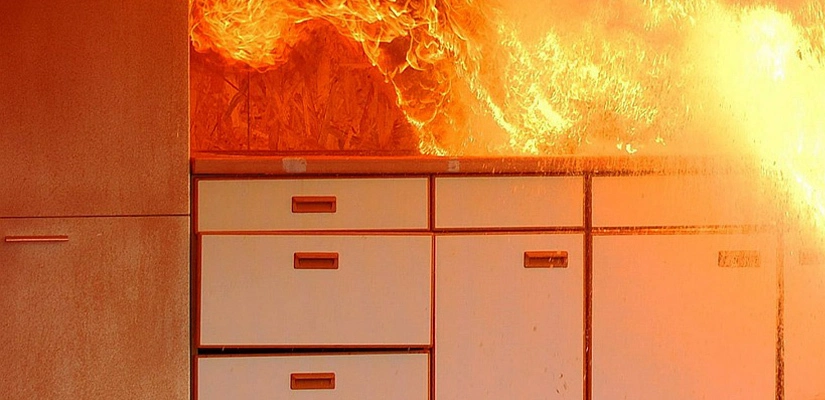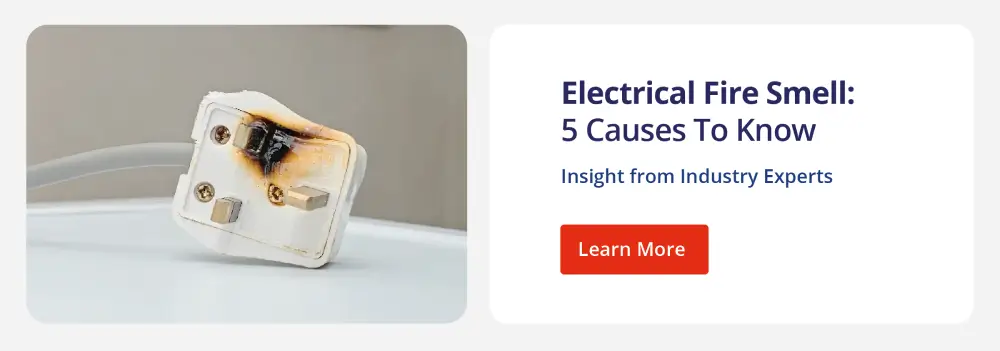
A grease fire can send even the most skilled chef into shock. While hopefully you’ll never have to handle one, grease fires are one of the most common causes of both kitchen fires and house fires, so it could pay to give the matter a little forethought. Seconds count in a grease fire, making your ability to react quickly and appropriately essential to putting out the flames before they get out of hand. What’s the best way to snuff out a fire if fat goes up in flames?
The Best Offense is a Good Defense: Avoiding Grease Fires
Caused by overheated oil, grease fires are easily preventable and far easier to thwart than mitigate. To avoid a grease fire, watch the oil for signs of smoking, taking it off the heat immediately to prevent ignition. Also take care with oily/greasy spills in burners, microwaves, and standard/convection ovens, keeping stoves properly cleaned.
No Fire Extinguisher? Grab these Common Kitchen Ingredients
Should grease catch fire in your kitchen, first try to remove the heat source by cutting gas/power to your oven/appliance. Next, attempt to smother the fire by removing oxygen, and covering the pot/pan with a non-flammable metal lid or baking pan. If this does not work…
- Pour-On Some Salt
- Salt is a great absorber of heat for its volume. A moderate amount – about a cup – can help extinguish a decent-sized grease fire.
- Baking Soda
- Does baking soda put out a fire like salt? Yes. Baking soda releases carbon dioxide, smothering flames. However, it takes substantially more. The box of baking soda freshening your fridge may not cut it, save for a small fire. The massively-sized box found in the laundry soap aisle of your grocer might.
STOP! These Kitchen Ingredients Will Make Matters Worse!
- Water
- NEVER use water to put that grease fire out. Remember the old adage: Oil and water don’t mix. Water can splash and spread drops of burning oil, making grease fires bigger.
- Flour
- Does flour put out a fire like salt and baking soda? No. Flour should NEVER be used to extinguish a grease fire. It could be ignited, making matters worse.
- Baking Powder
- Baking powder and baking soda are NOT the same thing, and like flour, will make a fire worse.
- Sugar
- One of sugar’s natural properties is flammability. Campfire-roasted marshmallows and the Imperial Sugar refinery disaster of 2008 in Georgia are prime examples of this. If you accidentally grab sugar in the confusion of a fire, and the fire gets bigger or starts to spread, it goes without saying: Don’t put your life at risk. Get out and call 9-1-1.
- A Wet Towel
- A wet dish towel can cause a grease fire to flare up, or knock the pan over and spread.
Empty Pantry? Time to Go Shopping
Your best bet for fighting a kitchen fire is not a baking ingredient. Next time you go shopping to restock your shelves, add a fire extinguisher to your cart - the correct kind - before you suffer a bigger fire. (A water-based fire extinguisher will cause the same issues as using water.) The best type of extinguisher for grease fires is a Class B dry chemical fire extinguisher. However class B-C "kitchen fire extinguishers" will also suffice, including affordable aerosol cans and new, stove-top varieties that mount under the range hood/over the stove.
Deep-fried kitchen? Even a seemingly small amount of fire damage can be tough to tackle. Luckily, from the small, yet significant, to the large and catastrophic, the caring professionals at Rainbow Restoration® have you covered. Call us for 24/7 emergency service or schedule an appointment online to get started today.

